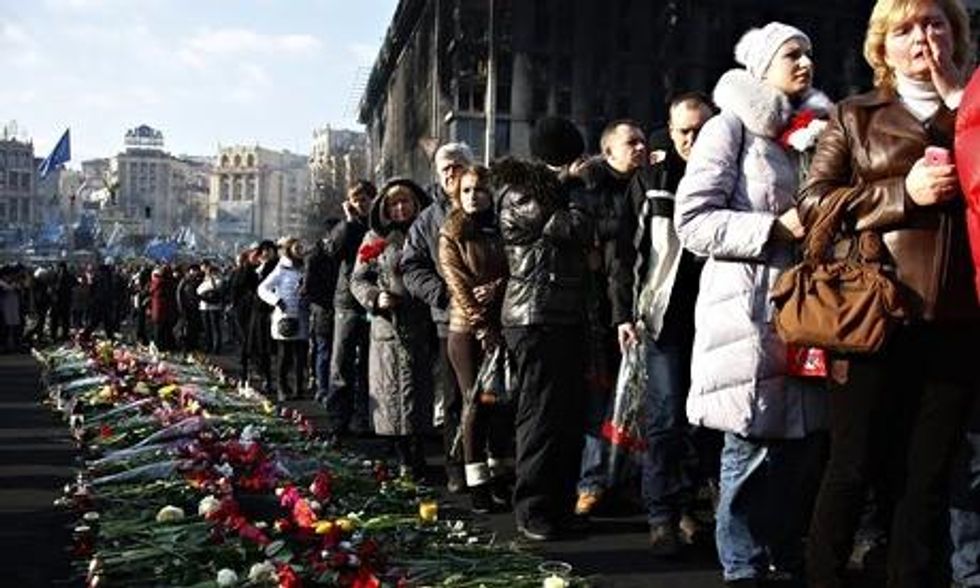At the same time, the Russian foreign ministry has harshly criticised what it believes to be the west's "one-sided" view on the situation in Ukraine. "We are not seeing a principled stance on criminal activity [in Ukraine]," a statement on the ministry's official Twitter account read on Monday. "The actions of extremists, which include neo-Nazi and antisemitic displays, are de facto supported [by the west]," the ministry also said. "The scenario of a forced change of government is being promoted."
Yet the Russian government does not seem ready to adopt a particular strategy on what to do about Ukraine at the moment. Or, if it does, it's not telling. The situation continues to develop, an early presidential election is set for May, and much can change between now and then. For the Kremlin, this may be a good time to simply twiddle its thumbs.
After all, Ukraine is in deep financial trouble. And it remains to be seen whether or not the interim government or the new president - whoever that may turn out to be (right now it seems all bets are off) - will be able to tackle economic problems in a constructive and decisive manner. It also remains to be seen whether western leaders, for all of their impassioned talk about "freedom" and "democracy", will be of any genuine help in the months to come.
Both Russians and the west have engaged in rather simplistic rhetoric about what is really taking place in Ukraine. For instance, the role played by the rightwing Pravy Sektor organisation in the unrest has been overplayed in Russian coverage, while simultaneously being underplayed in the western press. The truth is, claiming that "the protesters are all cuddly little bunnies who just want to give everyone a hug" is no less silly than "the protesters are all bloodthirsty fascists who want to rape and kill grandmothers and children".
Ultimately, Ukraine is a hot mess right now any way you look at it - but at least there were decisive steps taken in the parliament to prevent further bloodshed, while the protest movement itself, while far from monolithic (do take note of pro-Russia gatherings in places like Sevastopol, for instance), is at the very least loosely united under the very general banner of Things Are Messed Up and Chaos and Corruption Are Getting On Our Nerves.
Many of us are fond of talking about Ukraine as a divided country (I do it all the time), but historic divisions today are less important than divisions over how to move forward.
We may want to remember that, according to a November 2013 poll, 39% of Ukrainians favoured EU integration, while 37% of the country wanted to join Russia's customs union. And it remains to be seen whether or not recent bloody clashes have altered public opinion as far as what to do next. Whoever comes to power will certainly want to keep such poll numbers in mind, and that's putting it mildly.
The important thing, right now, is to honour human life - and prevent further violence. And while nothing is certain, I know the possibility is there. I'm a Russian-speaking native of Kiev, with both ethnic Russian and ethnic Ukrainian relatives who certainly manage to not kill each other at the dinner table, not to mention Russian-speaking and Ukrainian-speaking friends and acquaintances from different parts of the country who somehow manage to get along.
While these examples may seem trifling, in the grand scheme of things, tolerance and respect always start in the home, in our personal interactions with one another. If Ukraine is not to be torn apart - and it is my belief and hope that it will not be - the greatest lesson of the past few months may ultimately be simple: love thy neighbour, for you guys are all in this together.




